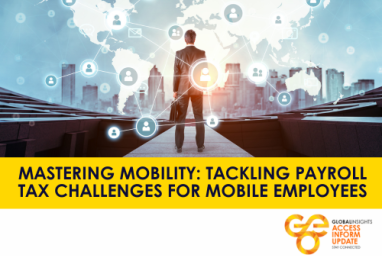In today's rapidly evolving business landscape, strategic alliances are no longer optional—they're essential for navigating complexity and fostering innovation. Companies that embrace collaborative ecosystems are better positioned to unlock new opportunities, mitigate risks, and achieve sustainable growth in the competitive equity management space.
With their combined decades of experience in the equity compensation landscape, Hannah McCullough, Justin James, and Dan Mullen from insightsoftware offered valuable insights and practical strategies for companies striving to amplify their equity programs and stay ahead in a dynamic regulatory environment.
The equity management ecosystem: key players
Successful equity management relies on a collaborative network of service providers, each offering specialist expertise:
- Software providers: Companies like insightsoftware deliver technology for reporting, data management, and automation. Certent Equity Management from insightsoftware simplifies equity administration and enhances accuracy.
- Administrative service providers: handle day-to-day operations like grant administration and stock settlements.
- Brokerage and participant servicing providers: facilitate transactions and provide employee education and support.
- HR partners: manage employee data and integrate equity compensation into broader benefits programs.
- Transfer agents: maintain stock ownership records and ensure compliance.
- Tax support providers: offer expertise in navigating complex tax regulations.
The challenge is two-fold: firstly, selecting the right vendors for each of these roles, and secondly, ensuring these players work seamlessly together to share data and coordinate processes. As Dan Mullen noted, issuers should consider "best in breed, best in class solutions" that integrate and deliver seamless experiences.
Key challenges for issuing companies
Managing equity plans is a high-stakes responsibility for issuers. They must coordinate multiple providers, each with their own systems, processes, and data formats. The main challenges include:
- Compliance and regulatory complexity
- Employee education and engagement
- Managing global equity plans
- Data accuracy, privacy, and record-keeping.
Actionable steps to successful strategic partnership integration
The webcast highlighted that overcoming these challenges requires issuers to embrace technology and cultivate strategic partnerships. Cutting-edge solutions, built for automation and seamless integration across the entire equity management ecosystem, are crucial.
When solutions work in harmony, they enable more efficient transactions and user experiences, ultimately driving optimal outcomes for both issuers and their employees.
Here’s how to identify and maintain successful partnerships:
- Define clear goals from the outset: outline specific objectives for equity management.
- Assess current capabilities: identify gaps that partnerships can address.
- Research potential partners: look for proven companies with strong reputations.
- Evaluate integration capabilities: ensure seamless integration with existing systems (insightsoftware’s Certent Equity Management is designed to do just this).
- Establish clear communication: foster open communication and regular check-ins.
- Monitor performance and provide feedback: continuously assess and adjust for the best outcomes.
Embracing partnership for equity management success
Modern equity management is inherently complex, making strategic partnerships essential in overcoming its challenges. By leveraging integrated solutions like Certent Equity Management, and fostering strong relationships with key service providers, issuer companies can streamline equity plan administration, ensure compliance, enhance employee engagement, and enjoy the impact of equity compensation as a tool for attracting, retaining, and motivating talent.
The key takeaway is clear: a collaborative, integrated approach is no longer a luxury—it is a necessity for success in today’s dynamic equity management landscape. For more information or to arrange a demo of Certent Equity Management, contact Justin James, Hannah McCullough, or Dan Mullen directly.
Watch a recording of the webcast on GEOlearn: HERE.






